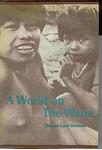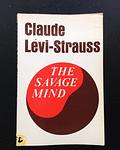Claude Lévi-Strauss
Claude Lévi-Strauss was a French anthropologist and ethnologist whose work was key in the development of the theory of structuralism and structural anthropology. He is known for his ideas about the elemental structures of human thought, which he believed exist in all societies. His most famous works include 'Tristes Tropiques' (1955), 'The Savage Mind' (1962), and the four-volume 'Mythologiques' series. Lévi-Strauss's insights have had a significant impact on a wide range of disciplines beyond anthropology, including philosophy, sociology, and literary studies.
Books
This list of books are ONLY the books that have been ranked on the lists that are aggregated on this site. This is not a comprehensive list of all books by this author.
-
1. Tristes Tropiques
"Tristes Tropiques" is a blend of autobiography, travel literature, and anthropology by a renowned scholar. The book is a recounting of the author's travels and anthropological work, primarily in Brazil, in the 1930s. It provides a critical and philosophical reflection on his experiences and observations, offering insights into indigenous tribes like the Nambikwara and Tupi-Kawahib, and exploring themes of cultural change, the nature of anthropology, and the author's own disillusionment with Western civilization.
-
2. A World On The Wane
The book is a reflective account of an anthropologist's journey through the Amazon Basin, documenting the lives and customs of indigenous tribes at a time when their traditional ways were increasingly threatened by the encroachment of modern civilization. Through a series of vivid observations and analyses, the author explores the complex social structures, myths, and rituals of these societies, while also contemplating the impact of Western influence on their survival. The narrative serves as both a poignant chronicle of disappearing cultures and a critique of the forces of colonialism and globalization that contribute to the erosion of human diversity and heritage.
-
3. The Savage Mind
This book is a seminal work in the field of anthropology that explores the structures of human thought across cultures, arguing against the notion of "primitive" minds in traditional societies. The author posits that so-called "savage" or "primitive" thinking is not inferior to "civilized" thought but is, in fact, an equally complex and systematic way of understanding the world. Through a detailed analysis of totemism, myths, and rituals, the work demonstrates how indigenous and non-Western peoples categorize and make sense of their experiences with the same intellectual rigor as those in modern societies, challenging ethnocentric views of human intellectual capabilities and contributing to the broader understanding of human cognition.
-
4. The Raw and the Cooked
"The Raw and the Cooked" is an anthropological analysis of the myths and customs of tribal societies, particularly those in South America. The author explores the concept of binary opposition, such as raw versus cooked or nature versus culture, as a fundamental structure in these societies' mythologies. The book provides a detailed and systematic study of the symbolic use of food and cooking in primitive societies, suggesting that the way a society categorizes food is a window into understanding its culture.
-
5. Structural Anthropology
This book serves as an introduction to structural anthropology, a field that focuses on human societies and cultures as systems of meaning. The author explores various topics such as kinship, mythology, and art, using a structuralist approach to understand the underlying patterns and structures that govern human behavior and thought. By analyzing different cultures, the author demonstrates how seemingly disparate elements can be understood in relation to each other within a larger system, providing profound insights into the nature of human society and culture.




